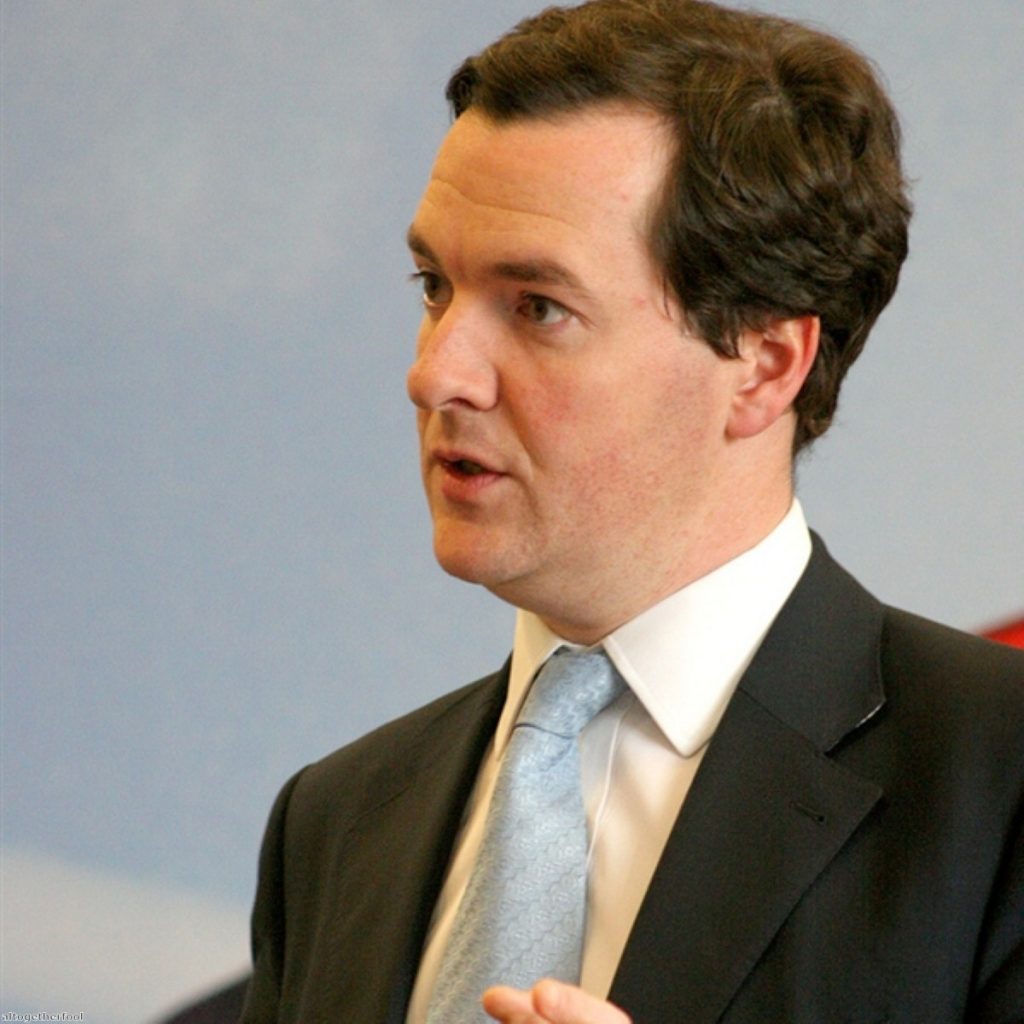Osborne urges eurozone to ‘get a grip’
By Phil Scullion Follow @PhilScullion
George Osborne has called on leaders to "get a grip" of the growing eurozone debt crisis, warning that events could be "as damaging" as those in 2008.
Speaking to the Financial Times this morning the chancellor said he was "very worried" that the eurozone crisis could spiral out of control.
However clashes between Germany and France over the Greek debt crisis appear to have been resolved ahead of a crunch eurozone meeting.


French president Nicolas Sarkozy flew to Berlin and held seven-hour crunch talks with Angela Merkel in an attempt to hammer out a deal.
The German chancellor had insisted that Greece's lenders should be made to share the burden of losses in any new bailout for the beleaguered nation.
The French and the European Central Bank (ECB) disagree, saying that this approach risks spreading the crisis further across Europe, most notably to Spain, Italy and potentially the ECB itself.
Today's summit in Brussels will represent a cliffhanger for Britain as the reverberations of a Greek default would almost certainly affect countries outside of the eurozone.
Greece faces dire economic problems as it battles against its debt to GDP ratio of 142.8%, despite receiving a £97 billion aid package in May last year.
However Mr Osborne has said that Britain will not be part of any eurozone solution.
"Britain's taxpayers stand behind the pound. Europe's taxpayers are going to have to stand behind the Euro," he added.
Shadow chancellor Ed Balls has criticised the government for not taking a more active role in solving the eurozone crisis.
He said: "At a time when leadership is needed, the UK government should be in Brussels leading the way.
"The British government should not be saying it is a eurozone problem or that we are not in the eurozone so we have no locus. They should be demanding to attend meetings we are not invited to, because this affects the British interest."
The shadow chancellor's call chimes with the stark warning from Sir Mervyn King, governor of the Bank of England, that the eurozone crisis represents a serious and immediate risk to the UK's financial system.
Figures released today by the Office for National Statistic showed that UK public borrowing was largely unchanged at around £12 billion in June.
Markit chief economist Chris Williamson said: "If growth continues to undershoot in coming months then tax receipts will be lower than expected and benefit payments higher.
"That puts the onus on the government's pending cuts, which may well act as a further drag on economic growth in the short term."
However Nick Clegg painted a rather less gloomy picture of the UK's financial problems, hitting out at any doubts over the coalition's approach to the deficit.
He said: "Our deficit was worse than Greece's, Portugal's and Ireland's. By taking the action we did we moved the UK out of the danger zone and into an area of greater economic safety.
However he conceded that the UK has a "vital self-interest" in resolving the eurozone debt crisis.
The eurozone's private sector grew at its weakest pace in almost two years in July according to new figures from Markit's PMI survey.
Markit chief economist Chris Williamson warned "The eurozone recovery lost almost all of its momentum in July."

